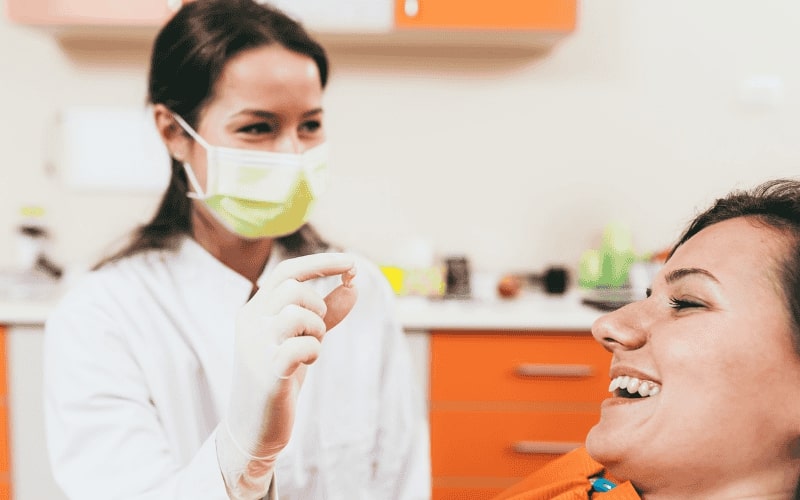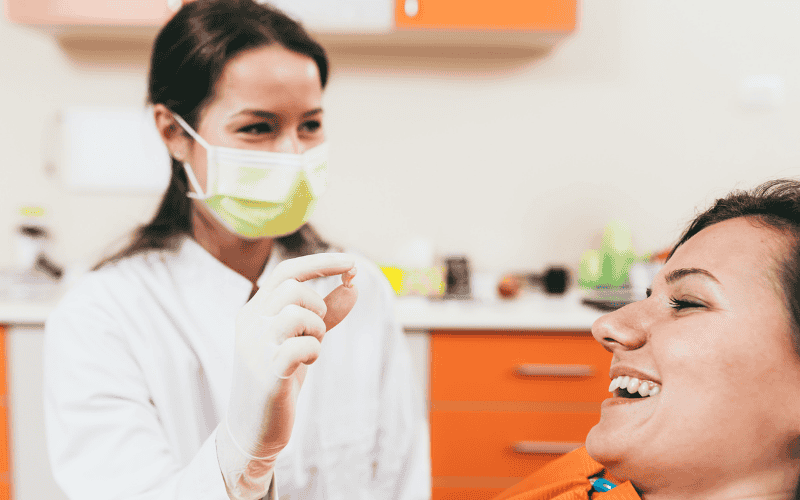ONLINE SCHEDULING AND VIRTUAL CONSULTS AVAILABLE

What Foods and Drinks Should You Avoid After Tooth Extraction? Your Essential Guide

Caring for your mouth after a tooth extraction is crucial for a smooth and speedy recovery. One of the most important aspects of this care is your diet. What you eat and drink can significantly impact how well and how quickly your mouth heals. Ignoring dietary recommendations can lead to complications, prolonging your recovery time and causing unnecessary discomfort.
In this guide, we’ll explore the foods and drinks you should avoid after a tooth extraction. We’ll provide practical advice on what to eat to support healing and highlight the risks associated with certain foods and beverages. Whether you’re preparing for an extraction or currently in recovery, this guide will help you make informed dietary choices.
Let’s ensure your path to recovery is as comfortable and efficient as possible.
Immediate Post-Extraction Period
Immediately after a tooth extraction, your mouth needs time to form a blood clot over the extraction site. This clot is crucial for healing, protecting the underlying bone and nerve endings. Dislodging this clot can lead to a painful condition called dry socket. To prevent this, avoid certain foods and drinks during this initial phase.
Foods and Drinks to Avoid Immediately After Extraction
- Hard and Crunchy Foods: Nuts, chips, and raw vegetables can dislodge the blood clot.
- Spicy Foods: Spices can irritate the extraction site and cause discomfort.
- Acidic Foods and Drinks: Citrus fruits, tomatoes, and soda can irritate the wound.
- Hot Foods and Beverages: High temperatures can dissolve the blood clot.
Following your dentist’s recommendations is vital during this period. Stick to soft, cool foods to avoid complications and ensure a smooth recovery.
Soft and Easy-to-Eat Foods
During the initial recovery phase from tooth extractions Plantation focus on consuming soft and easy-to-eat foods. These options will be gentle on your extraction site and provide the necessary nutrients for healing.
Recommended Foods During the Initial Recovery Phase
- Yogurt: Smooth and easy to swallow, yogurt is an excellent source of protein and probiotics.
- Applesauce: Soft and nutritious, applesauce is gentle on your mouth.
- Mashed Potatoes: A comforting, soft food that provides carbohydrates for energy.
- Smoothies: Packed with vitamins and easy to drink, smoothies are a great way to get your nutrients without chewing.
- Scrambled Eggs: Soft and protein-rich, scrambled eggs are easy on the mouth.
These foods not only avoid causing trauma to the extraction site but also help speed up your recovery.
Hard and Crunchy Foods
Hard and crunchy foods pose a significant risk to the healing extraction site. They can easily dislodge the blood clot or cause physical damage to the sensitive area.
Potential Risks of Hard Foods to the Extraction Site
- Nuts and Seeds: These can get stuck in the extraction site, causing irritation or infection.
- Popcorn: The hulls can lodge in the wound, leading to discomfort and potential complications.
- Raw Vegetables: While healthy, their hard texture can damage the healing tissue.
Avoid these foods until your dentist confirms that your extraction site has healed completely.
Hot and Cold Beverages
Extreme temperatures can affect your healing gums. Hot beverages can dissolve the blood clot, while cold beverages can cause sensitivity and discomfort.
Impact of Temperature Extremes on Healing Gums
- Hot Beverages: Coffee, tea, and hot soup can disrupt the blood clot and delay healing.
- Cold Beverages: Iced drinks can cause sharp pain in the sensitive extraction site.
Opt for lukewarm or room-temperature beverages during the initial recovery period to avoid any issues.
Alcoholic and Carbonated Beverages
Alcohol and carbonation can negatively impact the healing process. Alcohol can dry out the mouth and delay healing, while carbonation can cause irritation.
Effects of Alcohol and Carbonation on Healing Tissues
- Alcohol: Consuming alcohol can interfere with blood clot formation and increase bleeding.
- Carbonated Drinks: Soda and sparkling water can cause the extraction site to fizz and bubble, leading to discomfort.
Long-Term Dietary Considerations
After the initial healing phase, continue to be mindful of your diet. Certain foods and drinks can still pose risks if introduced too soon.
Foods and Drinks to Avoid in the Days and Weeks Following Extraction
- Sticky Foods: Chewy candies and gum can pull at the extraction site.
- Chewy Meats: Tough meats require significant chewing, which can stress the healing area.
- Crunchy Snacks: Chips and crackers can still be problematic.
Maintaining a balanced diet while ensuring oral health is essential. Focus on nutrient-rich, soft foods that support healing and overall well-being.
Proper diet plays a crucial role in your recovery after tooth extraction. By avoiding harmful foods and drinks and focusing on those that aid healing, you can ensure a smoother, quicker recovery. Always consult with your dentist for personalized advice and follow their recommendations closely. Remember, a little dietary caution now can lead to a healthier, pain-free future.





